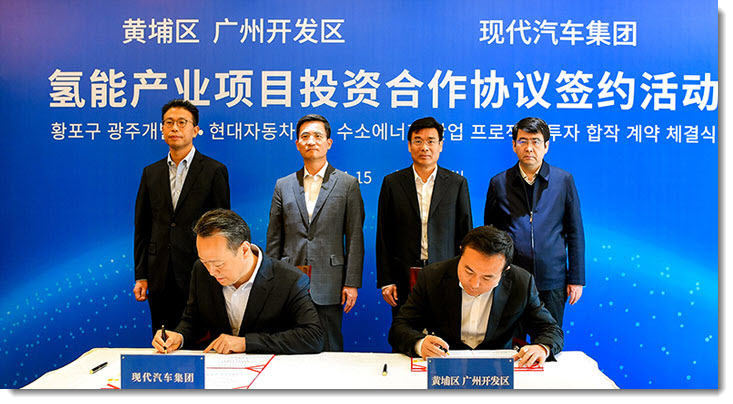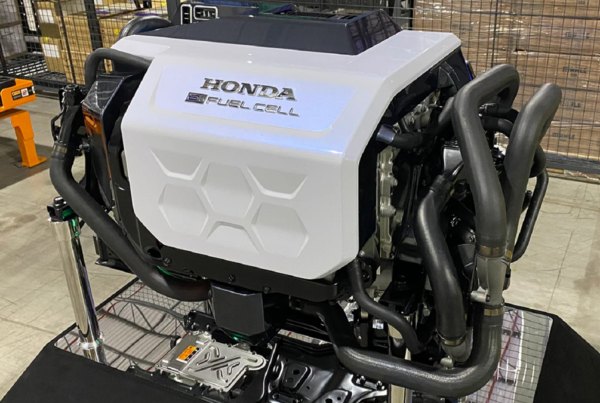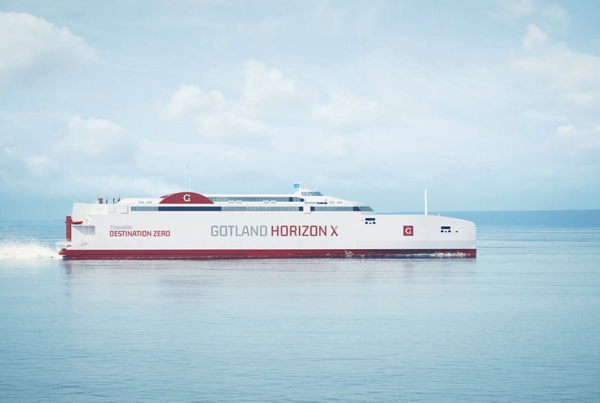
- Established hydrogen fuel cell system production and sales subsidiary in Guangzhou Development Zone, Guangzhou City, Guangdong Province, China
- Start of Operations in second half of 2022
- Mass production of 6,500 units per year, expanding the volume according to future market conditions
The Hyundai Motor Group is expanding its hydrogen fuel cell system business in China, following Korea, Europe, and the United States.
Hyundai Motor Group announced on January 15th that it has signed an investment contract to establish a hydrogen fuel cell system production and sales subsidiary with the Guangzhou Development Zone government in Guangzhou City, Guangdong Province, China. The event was attended by Guangdong relations such as Guangdong Provincial Ministry of Commerce Link, Huhong, Vice Mayor of Guangzhou City, Kwang-guk Lee, President of Hyundai Motor Group’s China Business, and Hyuk-jun Lee, Vice President of Hyundai Motor Group China (HMGC).
This investment contract is meaningful in that Hyundai Motor Group will establish its first overseas production base for hydrogen fuel cell systems in China, which is promoting’hydrogen drilling’, to solidify its position as a leading company in the hydrogen field.
Hyundai Motor Group’s annual global supply of 700,000 hydrogen fuel cell systems in 2030
The Hyundai Motor Group plans to supply about 700,000 units of hydrogen fuel cell systems annually to the world by 2030, further expanding its global business with the establishment of a production base in China. Prior to this, Hyundai Motor Group signed an eco-friendly powertrain joint development agreement with Cummins in the U.S. in 2019, starting with a fuel cell technology partnership with Audi in 2018 in the field of hydrogen fuel cell system business, and energy solution startup with a European hydrogen storage technology company in 2020. It has started exporting to the industry.
The new subsidiary will be 100% owned by Hyundai Motor Group. Hyundai Motor Group signed an MOU with the Guangdong Province of China regarding the establishment of a corporation in December 2019, and has been through pre-market research to advance into the Chinese hydrogen fuel cell system market and site selection for the construction of production facilities. We have been discussing details with Guangdong Province and Guangzhou City.
Hyundai Motor Group’s hydrogen fuel cell system production base in China is scheduled to start at the end of February of this year and will produce 6,500 units per year from the second half of 2022. It mainly produces the hydrogen fuel cell system installed in the hydrogen electric vehicle Nexo, and plans to sequentially expand its supply capacity in accordance with the Chinese central government policy and market conditions.
The Hyundai Motor Group is preoccupying the Chinese hydrogen market, which is expected to accelerate growth under the strong leadership of the central government, with the world’s best hydrogen fuel cell system mass production technology, including eco-friendly vehicles, hydrogen electric vehicles, and commercial hydrogen vehicles. I plan to go out.
China promotes supply of 1 million hydrogen electric vehicles by 2035
In October of last year, the China Automobile Engineering Society, which is an advisory body for automobile-related policies of the Ministry of Industry and Information Technology, announced the’Energy Saving and Eco-friendly Vehicle Technology Roadmap 2.0′, and by 2035, It proposed a policy that the proportion of sales of reduced vehicles (hybrid cars, fuel-efficient cars, etc.) should be 50% each.
In particular, this roadmap includes a specific goal of supplying up to 1 million hydrogen electric vehicles, mainly commercial vehicles, by 2035, giving a glimpse of the atmosphere of fostering the hydrogen industry in China. In addition, from this year to 2025, China’s ’14th Five-Year Economic Development Plan’ is in progress, and China’s expansion of eco-friendly vehicles is also expected to accelerate.
The Chinese government is actively attracting major foreign companies to develop hydrogen electric vehicle technology and foster the market. Accordingly, global companies are actively moving to preoccupy an early position in the newly opened China’s huge hydrogen market.
Since Toyota built a hydrogen station in Jiangsu Province, China in 2017, it has been continuously promoting market entry through cooperation with leading companies in China. In June of last year, it established a R&D joint venture in Beijing in cooperation with China’s Ewha Tong Hydrogen Fuel Cell System Group, DI Automobile Group, Guangzhou Automobile Group, Beijing Automobile Group and Dongfeng Automobile Group.
Global companies such as Ballard Power Systems of Canada, Bosch and SFC Energy of Germany, and Ceres Power of the UK are also rapidly entering the hydrogen fuel cell system business in China. In the future, fierce competition for securing technological leadership is expected.
Synergy effect is expected by utilizing extensive infrastructure in Guangdong, China’s economic hub
Guangdong Province, where Hyundai Motor Group’s first overseas hydrogen fuel cell system production base was built, was the first place where China’s reform and opening policy began 40 years ago, and is the economic center of China’s No. 1 Gross Domestic Product (GDP) ranking.
Guangdong Province is continuously promoting local government-level policy efforts to foster the hydrogen industry. In November of last year, the company announced a plan to promote the implementation of the hydrogen fuel cell vehicle industry in Guangdong Province, and disclosed specific goals to strengthen the hydrogen industry competitiveness by utilizing industrial complexes, R&D facilities and related value chain industrial bases in Guangdong Province.
In addition, it has also announced a pilot operation plan for various hydrogen businesses, such as ships, home hydrogen fuel cells, and emergency power systems, centering on commercial logistics vehicles, and has an environment suitable as a bridgehead for Hyundai Motor Group’s entry into the Chinese hydrogen market.
The Hyundai Motor Group mass-produced the world’s first hydrogen electric vehicle Tucson ix35 in 2013, and after mass-producing the 2nd generation hydrogen electric vehicle Nexo in 2018, it achieved global cumulative sales of 10,000 units in July 2020. This is the largest sales volume among hydrogen electric vehicles of global automobile companies, and the hydrogen fuel cell system technology, which is the basis for it, is evaluated as the world’s best.
Based on this technological competitiveness, Hyundai Motor Group can directly participate in various hydrogen industry development pilot projects promoted by Guangdong Province through mutual cooperation with major Chinese companies, and secure a stable sales base from the beginning of local corporation establishment. Is expected to be.
In addition, in preparation for the expansion of the hydrogen fuel cell system supply expansion project from a pilot project led by the Chinese government to a self-competitive system, it has mass production capabilities, and has established a strategic partnership with the front and rear companies related to the hydrogen industry in China to establish a strong market dominance throughout China. I plan to keep it.
Meanwhile, Hyundai Motor Group is investing a total of 7.6 trillion won in Korea to build a broad hydrogen industry ecosystem according to the FCEV (hydrogen electric vehicle) vision 2030 announced in 2018 as planned. In the future, the company will continue to strengthen its world-class technological advantage by expanding the lineup of next-generation hydrogen fuel cell systems such as high-power systems and lightweight high-density systems through new technology development.
Read the most up to date Fuel Cell and Hydrogen Industry news at FuelCellsWorks




